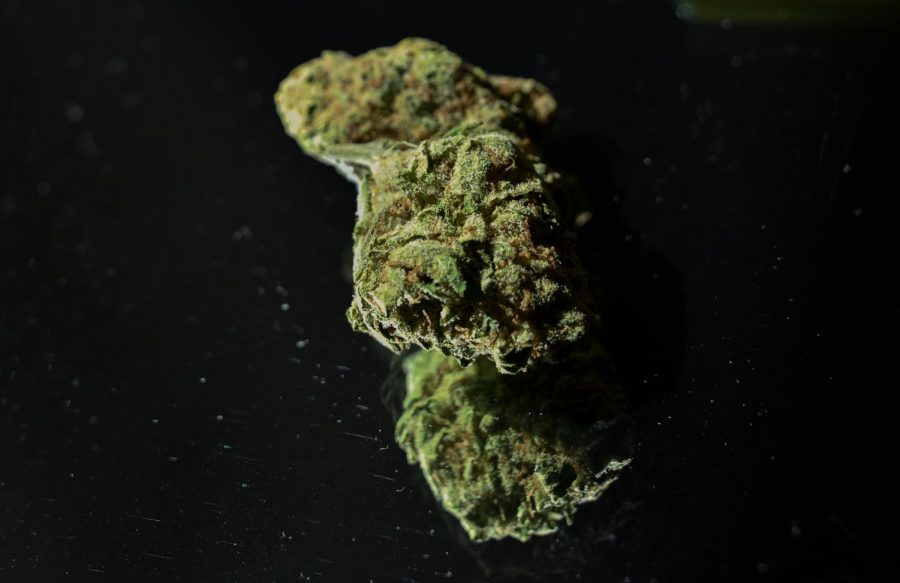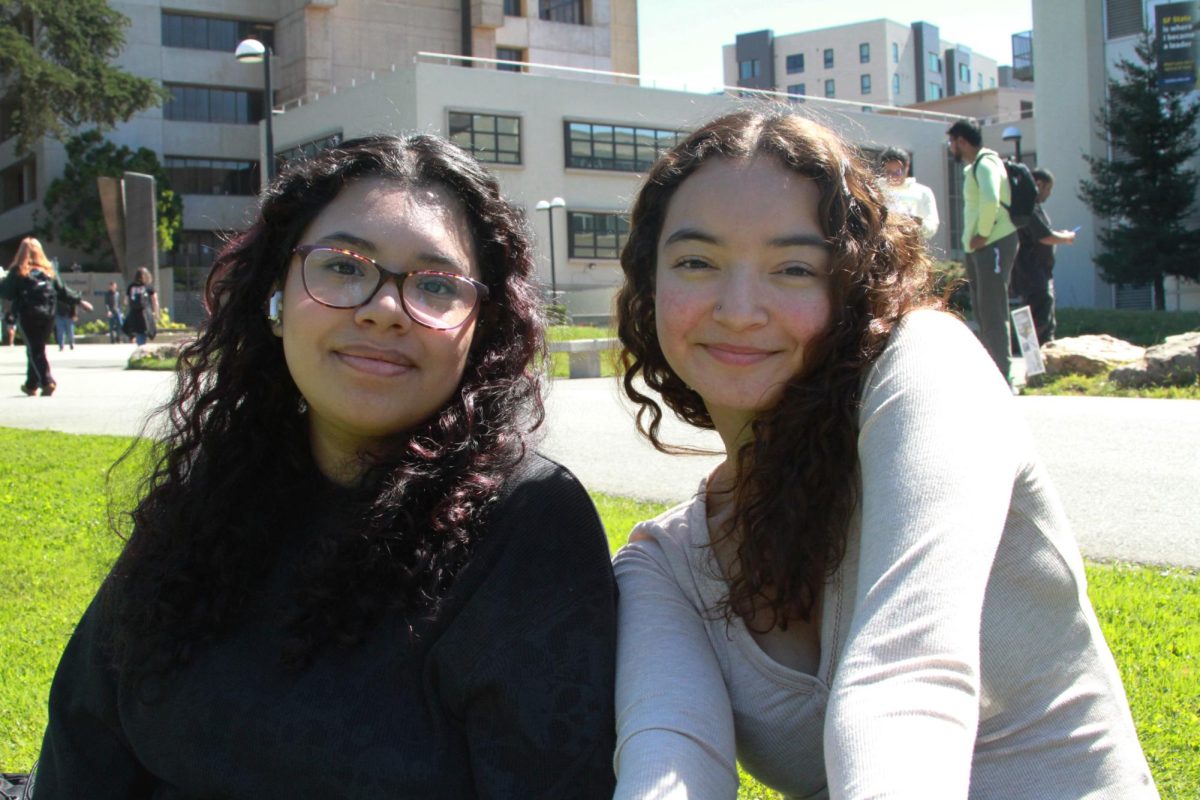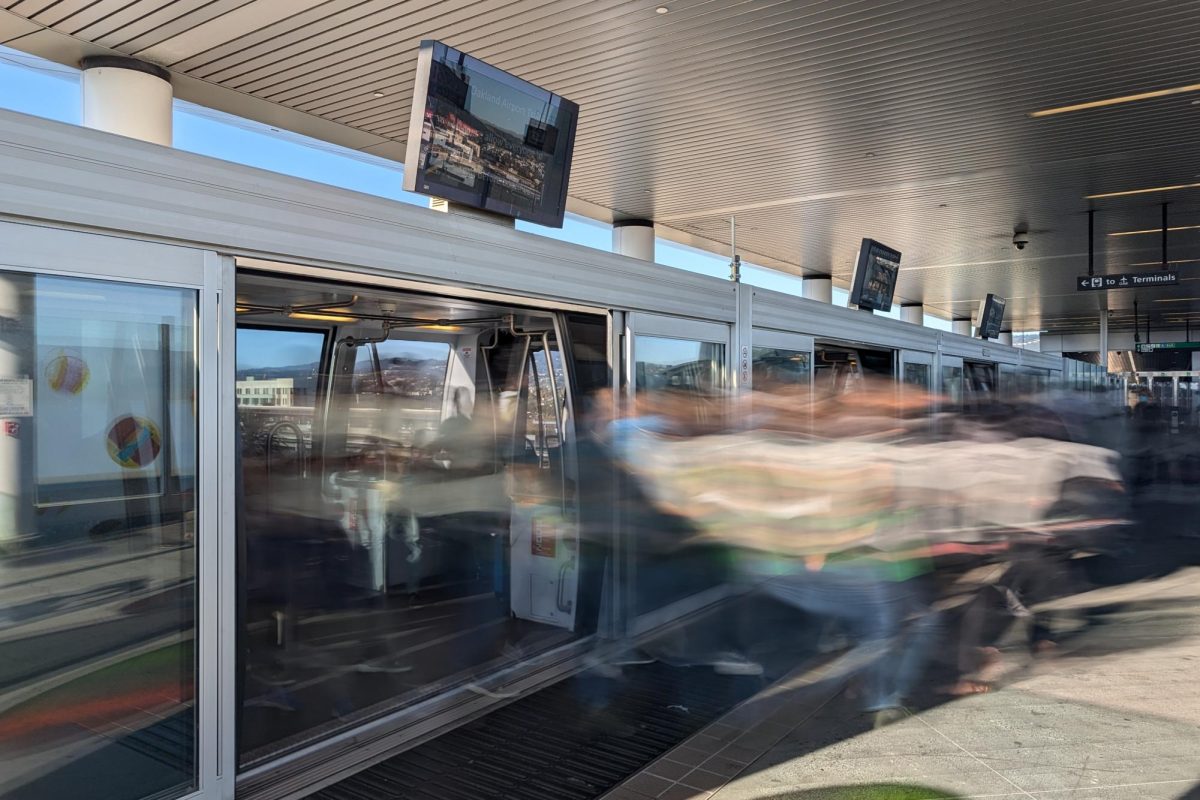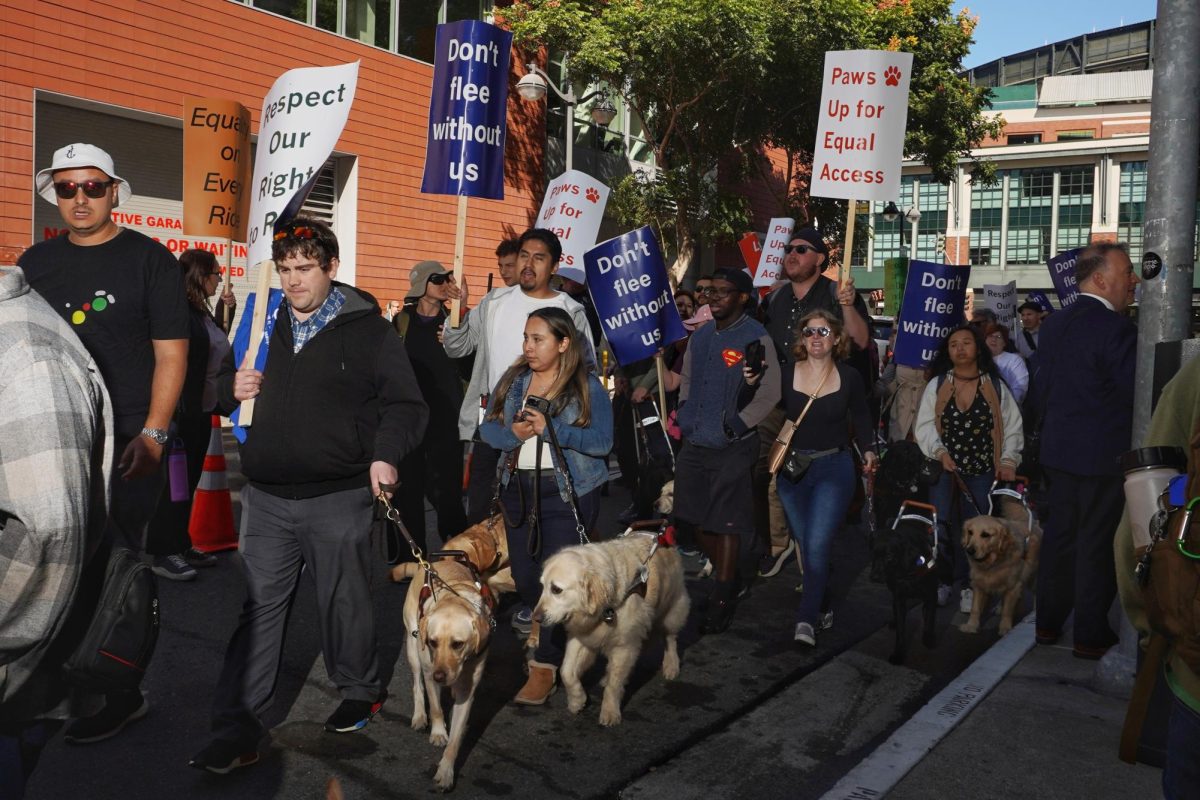The legalization of recreational cannabis opened doors for people around the country to get their foot into the growing industry, but still faces issues with accessibility.
Since the March shelter-in-place order in California, cannabis has been declared an essential business by Gov. Gavin Newsom. Not just brick and mortars, but farmers, cultivators, distributors and manufacturers as well. While the economic burden of the COVID-19 pandemic has kept the cannabis industry intact, and has even increased sales at volumes 40% higher than 2019, the industry is not immune to the demands of those calling for racial equity across the nation.
The cannabis industry is a mostly white, male-dominated space. According to a 2017 study by Marijuana Business Daily, 81% of people who own and run a cannabis business are white, whereas 19% of cannabis businesses nationwide are run by people of color. Disparities in arrests remain prevalent as the cannabis industry becomes more diverse. Nationwide, the arrests of Black people remain higher than those of white people according to the American Civil Liberties Union (ACLU).
To increase the diversity in this industry, Black people, people of color and women have started organizations to help more entrepreneurs get into owning their own stores and spaces, allowing people of diverse backgrounds to get into cannabis.
Amber Senter, co-founder and executive director of the Oakland cannabis collective Supernova Women, said that being a Black queer woman in the business of cannabis is a difficult task.
“It’s hard,” Senter said. “Cannabis is no different than tech, no different than construction, it’s all the same. We’re constantly the minority. We face the same racism and the same issues as any other industry.”
Cannabis becomes a more lucrative business as time goes on. According to a Marijuana Business Daily study, the number of women executives in the cannabis industry increased in 2019 to nearly 37%– nearly 10% higher than what it was for 2018 at 26.8%.
Reese Benton, the owner of Posh Green Collective located in Bayview-Hunters Point, is one of the 37% of women who are executives in the cannabis industry. Benton noted that being in spaces and industries where Black people are the minority is the norm.
While 19% of cannabis businesses may be run by a person of color, that does not necessarily mean the business is owned by people of color.
“Being a Black woman in cannabis is not easy because people don’t want to give you money,” Senter said. “Most of these folks with money don’t identify with you, they like to give money to people who remind them of themselves, and that’s often not me.”
According to an ACLU “Marijuana In Black and White” study, which took place from 2001 to 2010, both Black people and white people used marijuana at the same rate but Black people were arrested four times more than their white counterparts for possession.
“We do advocate on behalf of Black and Brown folks for programs that make it easier for us to get into the industry and sustain our businesses,” Senter said. “We did work very closely with the city of Oakland to develop the world’s first cannabis social equity program. We did advocate very heavily to get the cannabis taxes lower for social equity businesses.”
Oakland’s Cannabis Equity Program emerged from a 2016 race and equity analysis on medical cannabis regulations conducted by the Oakland City Council. The analysis identified disparities within the industry and places for revision in the city’s ordinances. The analysis recommended a $3.4 million investment in forthcoming cannabis business tax revenue. Actions such as this are intended to “lay an equitable foundation for the cannabis industry at a pivotal moment given the rapid pace of the industry and the eve of implementation of state medical cannabis and adult use laws.”
According to the 2017 NPR podcast Code Switch, around one-third of Oakland’s population was Black, yet made up nearly 80% of those arrested for cannabis-related offenses.
“When you look at disparities, which is comparing the rates of arrests of, let’s say, whites versus blacks, it generally has very little effect on that so that you see that disparities either remain the same or actually will increase,” Ezekiel Edwards, co-author of the ACLU study, said on podcast.
Benton said that for Black people, the ratio of incarceration compared to the 4% of Black-owned cannabis businesses is disrespectful to the Black community.
“For us to be incarcerated for cannabis and for us to not be majority owners, it’s like a slap in the face,” Benton said. “With people still being in jail for this, we have to think, people are coming home, but how are we fixing their lives?”
The war on drugs, which started in 1971, altered America’s perception of the distribution and the use of drugs. President Nixon described drugs as “public enemy number one.”
By 1982, the Reagan administration focused on the war on drugs with a very specific campaign. It included cracking down on the sale, distribution and consumption of all drugs. This stricter policy heavily disenfranchised Black people and other people of color.
In a Harper’s Magazine interview, former Nixon advisor John Ehrlichman said that they could not start a war on Black people, but they could associate hippies with marijuana and Black people with drugs like heroin and crack-cocaine.Heavy criminalization on those drugs would become the mechanism used to eradicate those two communities.
“We could arrest their leaders, raid their homes, break up their meetings and vilify them night after night on the evening news,” Ehrilchman said. “Did we know we were lying about the drugs? Of course we did.”
The impact the war on drugs has had on Black and Brown communities is still prevalent today. According to the Center for American Progress, about one-fifth of the American federal prison population is serving time for drug charges.
Despite the odds being stacked against the Black and Brown community when it comes to safely using and selling marijuana, Benton believes that “It doesn’t matter what background you come from. There is a way to make things happen and to make your dreams come true.”
Organizations like Supernova Women, Cannaclusive and the Floret Coalition are working around the barriers that the war on drugs has set in place, preventing Black and Brown people from accessing cannabis spaces.
The Floret Coalition is a branch off of Broccoli Magazine, a publication that encourages the appreciation of cannabis through different mediums like art, fashion and music. Floret is described as an anti-racist collective of small businesses that help raise money and awareness for Black, Latinx, and Indigenous communities.
Kassia Graham, a board member of the Floret Coalition, said that the Floret Coalition started nearly two months ago with the purpose to increase the monetary assistance that smaller organizations in the cannabis space and outside oftentimes need.
“The coalition is focused on giving back to organizations that assist Black, Indeginous, Latinx and other people of color groups, but with an emphasis on the Black, Indeginous and Latinx folks,” Graham said. “Because we have been the most impacted by the war on drugs in the United States.”
A 2016 study from the Substance Abuse and Mental Health Services Administration found nearly 15% of people in San Francisco over the age of 12 consumed cannabis within the past month– almost double the national 7.7%.
Cannabis companies have been able to turn a hobby into a flourishing business. Yet Black business owners and Black cannabis consumers do not always get this chance. Black people are still faced with the fact that they are still more likely to be arrested for cannabis than their white counterparts, according to the Center for American Progress.
Increasing diversity in the cannabis industry is happening slowly but surely. With the rise in political activism and the Black Lives Matter-inspired movement, people have been seeking ways to meet their needs of getting or being high, but more responsibly. Posts like ‘Oh, You Like Weed?’ via The Emerald Magazine Instagram page highlights cannabis retail stores, brands, organizations, delivery services, cultivators, food services, media spaces and even CBD services all owned and operated by Black people.
“It is beyond the Black and white. Inclusion means that we are looking at gender, sexuality, ability. It’s about people who have been incarcerated, people who may have a generational history of hemp farming,” Graham said.







